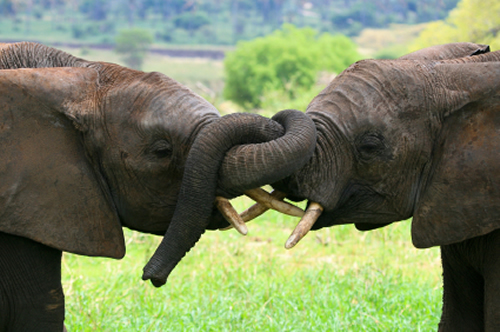
The ten member states of the Central African Forests Commission (COMIFAC) have approved an unprecedented agreement to strengthen law enforcement efforts against rampant wildlife trafficking which is plaguing the region.
Prompted by the recent massacre of hundreds of elephants in Cameroon’s Bouba N’Djida National Park, wildlife ministers from the COMIFAC countries have pledged to undertake new levels of cooperation which would include joint-country patrols in transborder areas.
The member states — Burundi, Cameroon, Chad, Central Africa Republic, Equatorial Guinea, Republic of Congo, Democratic Republic of Congo, Gabon, Rwanda and Sao Tome e Principe — have agreed to ramp up investigations, monitor cases for corruption, and prosecute wildlife traffickers to the fullest extent of the law.
In addition, customs controls at international transit hubs will be strengthened. Ivory, rhino horn, and other wildlife parts from Africa are often smuggled across inland borders before heading overseas to China and Southeast Asia.
A tri-partite plan to join forces and increase transboundary collaboration was also adopted by Chad, Central African Republic and Cameroon.
Technical and financial assistance toward the development of the COMIFAC plan and ongoing support for implementation is being provided by the US Fish and Wildlife Service, TRAFFIC, and WWF.
Elephant killings in particular have escalated on the African continent following the CITES decision to allow a one-off ivory sale in 2008, in which China was the largest buyer.
Africa’s elephant crisis was the topic of last month’s U.S. Senate Committee on Foreign Relations Hearing, at which Tom Cardamone from GFI testified that the illegal wildlife trade is connected to insurgent groups and global terrorism.
Source: PRWeb
Image © iStockphoto.com




